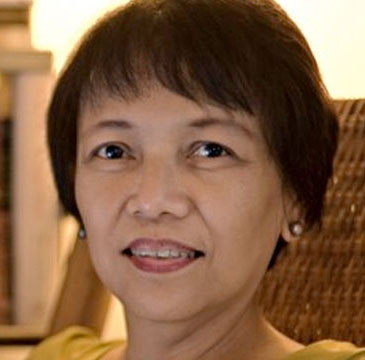SUMMARY
This is AI generated summarization, which may have errors. For context, always refer to the full article.
 Under the searing sun, in an island bathed in blood in World War II and, in 1968, when young Muslim men who were being trained to invade Sabah were killed as they tried to escape, history unfolded as President Aquino led the ceremonies to mark the 45th anniversary of the Jabidah massacre on March 18.
Under the searing sun, in an island bathed in blood in World War II and, in 1968, when young Muslim men who were being trained to invade Sabah were killed as they tried to escape, history unfolded as President Aquino led the ceremonies to mark the 45th anniversary of the Jabidah massacre on March 18.
Memories of the clandestine mission, of a president driven by power, of soldiers and murder, of a national cover-up, came alive.
On the grounds where the men from Sulu and Tawi-Tawi were shot dead by the military as they ran for their lives, Aquino stood before an audience, mainly of Muslim youths, and said he was there to give meaning to their deaths. It was important that the armed forces top brass, led by chief of staff Gen. Emmanuel Bautista, were at the event.
Before he spoke, Aquino led the groundbreaking of a memorial to the massacre where a marker was set up in 2008. Nearby, an elevated area facing the scenic Manila Bay, from where a survivor escaped, has been named Mindanao garden of peace.
After all these years, finally, a president gave official recognition to what has become known as the Jabidah massacre, which is not part of our history books. Neither is it included in contemporary tours of Corregidor.
But the crisis in Sabah cast its long shadow in Corregidor. As he was making history—Aquino is the first president to officially commemorate this dark chapter in our past—he was presiding over a repeat of history, in a way.
From his perspective, history was repeating itself in Lahad Datu, the coastal village in Sabah which was occupied by armed followers of the Sultan of Sulu, because a group opposed to him conspired to make this happen. Just as Ferdinand Marcos plotted to destabilize Sabah and fulfil his expansionist dreams in March 1968, the people behind the “royal forces” want to create trouble for the popular Aquino and derail the peace process with Muslim rebels. In both cases, the Muslims were used as pawns.
Promised land
There’s another side. History repeats itself because Sabah remains the promised land to many Muslims. The island, which is so close to our southern border, is rich; it offers a sharp contrast to Sulu and Tawi-Tawi. It has vast plantations and available jobs. It is home to hundreds of thousands of Filipino Muslims who fled the conflict in Mindanao in the 1970s and, later, to those who needed work.
Sabah is the promised land to the heirs of the Sultan of Sulu who feel they did not get their just share of an island that used to belong to their forebears. Their proprietary claim continues to linger and they want recognition and money.
On the ground, in Sulu, a reporter for Al Jazeera found that some paid their way to Lahad Datu. “From how I saw it, people from far-flung villages joined on their own. There was no need for recruitment,” Jamela Alindogan told me. “ I asked an 18-year old, were you trained? He said his training is that he grew up in Sulu. The wife of a man who was killed [in Sabah] said that her husband spent their last P2,000 to go to Sabah.”
Alindogan said they were promised land and jobs. “They cling to stories of their glorious past. People here will hold on to anything since there is nothing to look forward to,” she continued.
Crisis over?
When I asked Mujiv Hataman, officer in charge of the Autonomous Region in Muslim Mindanao, how the crisis in Sabah would end, he declared, “The crisis in Sabah is over.” The Philippine humanitarian contingent has entered Lahad Datu, he said, after being barred for weeks.
But the crisis in Mindanao is far from over. Beyond the commemoration in Corregidor, Hataman, the brainchild of the historic event, says that government’s focus now is on the emergency response to and economic rehabilitation of returnees from Sabah.
Together with members of the Cabinet—the secretaries of public works and highways, agriculture, and environment and natural resources—Hataman said he has been working to allocate lands in Basilan, Tawi-Tawi and Sulu where those dislocated in the Sabah conflict can settle and earn a living.
How about the disgruntled royal heirs? Here’s where the plan remains unclear. But one thing is certain. There is a lot of rancor between Jamalul Kiram III and Malacañang officials. “They have a history of lying [since the intrusion into Lahad Datu],” Rene Almendras stressed, referring to the Kirams. The Cabinet Secretary, who accompanied Aquino in Corregidor, did not mince words and was visibly irritated.
Hataman has met with Jamalul, his brother, Esmail, and daughter, Jacel a number of times. He disclosed that Jamalul, at one point, signed a note authorizing Esmail and Jacel to speak for their family.
Like President Aquino, Hataman is convinced that dark forces are behind the Kirams. For why else are they unrelenting in their position? That could be the only reason, Hataman concluded.
With this mindset, this flank in Mindanao will continue to cause trouble. – Rappler.com
,
Add a comment
How does this make you feel?
There are no comments yet. Add your comment to start the conversation.